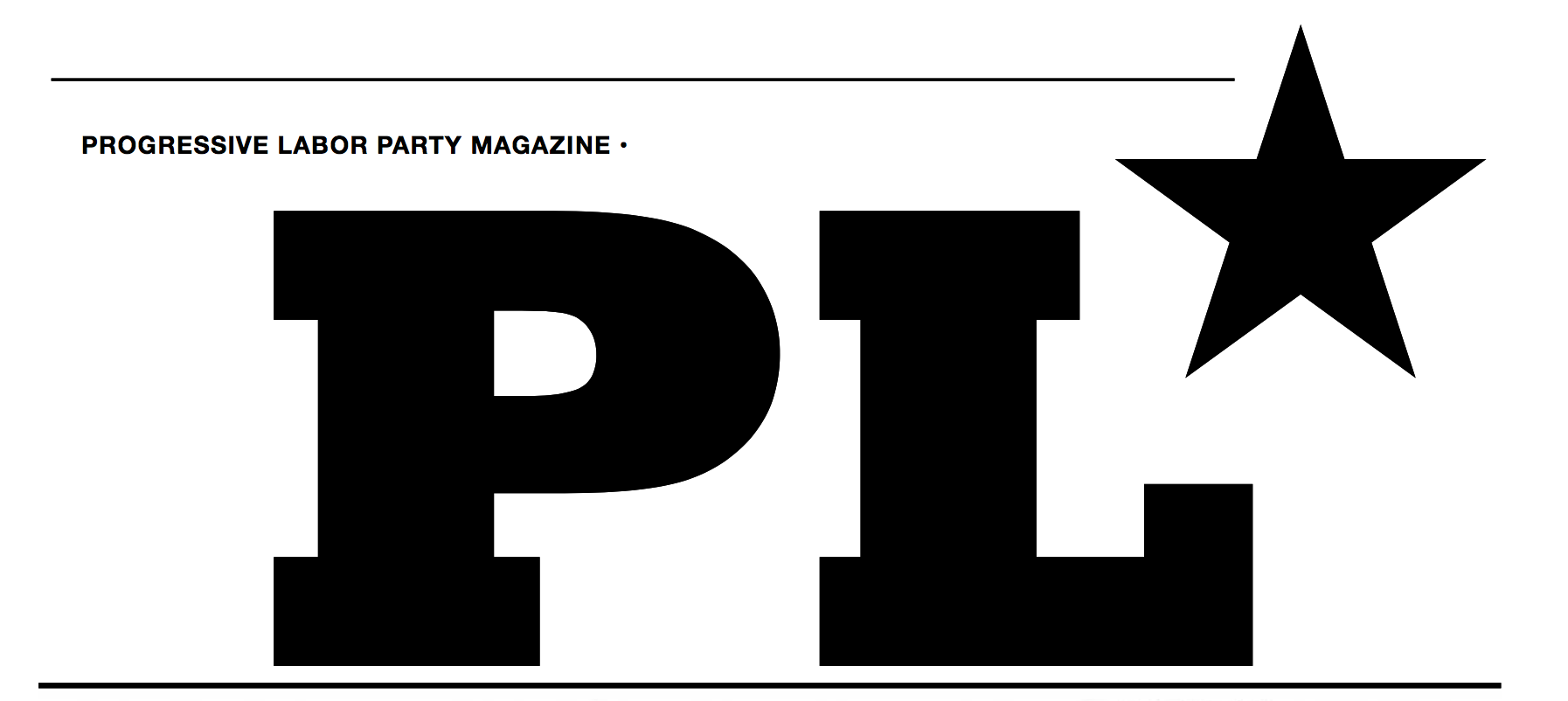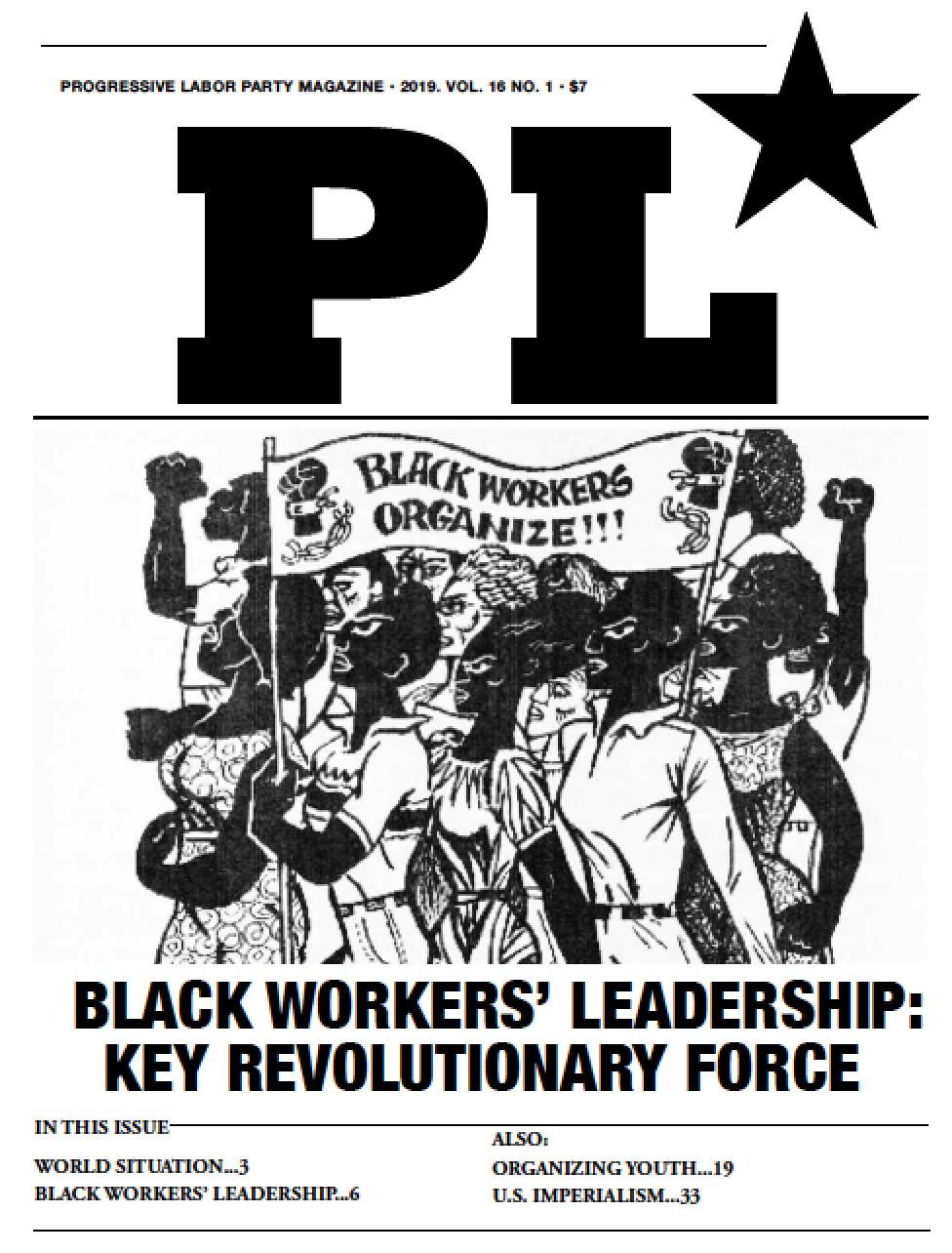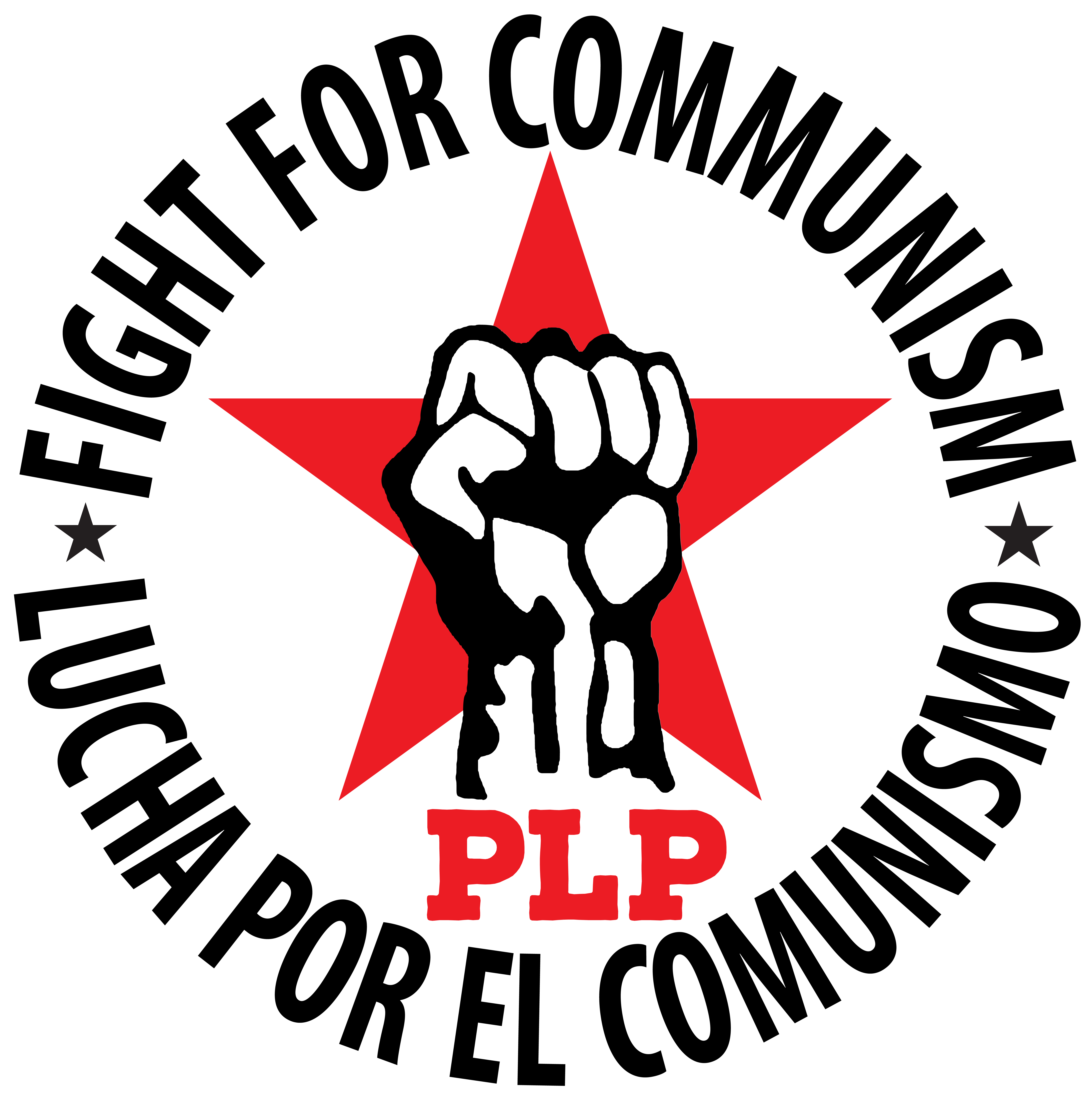Imperialism Is Poison for Workers
 Thursday, April 23, 2015 at 3:08AM
Thursday, April 23, 2015 at 3:08AM Howard French’s new book, China’s Second Continent: How a Million Migrants Are Building a New Empire in Africa (2014) advances the notion that China is building a new empire. This is a country still admired by many workers in smaller capitalist countries for standing up to the old imperialist powers of Europe and North America. The Chinese government describes its activity in Africa as a “win-win” interaction, fraternal solidarity between developing countries.
Communists dismiss this as self-serving capitalist propaganda, based on the analysis of imperialism developed by Russian communist Vladimir Lenin nearly a century ago (see box on page 7). Even some African bosses fear the burgeoning Chinese presence as a form of “soft power” empire building. This would represent a dramatic change from China’s activities in Africa during China’s socialist period under Mao Zedong, a time when “third world solidarity” was more than an anti-colonialist slogan.
Chinese Workers and Businesses in Africa
This book provides the reader with a useful snapshot of a massive and poorly understood continent through a series of short profiles of people on the ground in a dozen African countries. The author spoke with Chinese immigrants and African workers, focusing on the reasons the immigrants moved to Africa, their role in the economy and the way their presence is viewed by African workers.
The Africans interviewed range from government and NGO operatives to ordinary African workers employed by Chinese enterprises. Since he speaks Mandarin, his interviews included Chinese working-class immigrants.
The attraction of Africa is intense for many of them. Some were drawn by wages higher than they could find for similar work in China. Some had accumulated money working on projects for big Chinese firms and when their contracts were finished, decided to stay in Africa, acquire a bit of farmland or open a shop. In Africa, which has roughly 60 percent of the world’s unused arable land, the prospect of setting up one’s own farm is much better than back home in China. These farmers or operators of Chinese restaurants or roadside stalls would appear to be the majority of the one million Chinese workers living in Africa today.
Much of the author’s critique of China’s growing presence in Africa focuses on interactions between Chinese business owners and the African workers they hire — or don’t hire because of racism. China’s capitalists are faulted for not contributing to the training of African workers, or guaranteeing technology transfers to the indigenous workers. Yet, the fault for this is often laid at the feet of African capitalists, who are described as all too eager to accept gifts in exchange for deals that hurt African workers.
Although French comes across as giving an even-handed account that alludes to exploitative behaviors of European and U.S. powers in Africa, it is the Chinese who are quoted calling the Africans “lazy.” It’s Chinese capitalists we hear berating or beating Black workers. No context or history from past colonizers is ever mentioned, such as the brutal Portuguese rulers who amputated the hands of mineworkers for not delivering enough gold. Rather, the supposed benefits of Western style “democratic reforms” are constantly touted and shown in contrast to the Chinese pragmatic business dealings that include ignoring abusive policies of the host governments. The list of U.S.-backed butchers in Africa and other parts of the world is long, but never mentioned once. Yet, the author scolds the Chinese capitalists for being unprincipled and uncensored with “human rights.”
China: A Serious Imperialist Rival
Besides the investment of private Chinese capital in Africa, there are official Chinese government infrastructure projects, often undertaken as part of a construction-for-raw-materials deal. In those deals, the Chinese imperialist bosses lock in prices for resources to be extracted over a number of years. One example is the $6 billion deal recently negotiated with Congo. The Chinese government will build new roads, railway lines, hospitals and schools and in return have access to one of the world’s largest deposits of copper and cobalt for the next 20 years.
In another copper-mining enterprise in Zambia, the falsehood of Chinese bosses’ “win-win” rhetoric emerges in the details of violent clashes between the Chinese bosses and African workers. During one clash on October 15, 2010, the bosses shot miners who protested dangerous and extremely harsh working conditions for little pay.
Two other important large resource deals supported by the Chinese government deserve mention. They involve development of petroleum resources in Sudan and Libya. In 2011, the Chinese government evacuated tens of thousands of Chinese petroleum industry workers from Libya during the conflict that led to the overthrow of Muammar Gaddafi. The Chinese walked away from some $30 billion in investment by abandoning Libya.
In Sudan, the Chinese fared a little better. They first supported the Sudanese government in Khartoum fighting against the U.S.-backed separatist rebels in the south. When the rebels succeeded in splitting their oil-rich province from the Khartoum regime’s control, the Chinese deftly switched their “friendship” to the separatists, and continued their gas and oil projects. As part of their development of South Sudan’s petroleum industry, 80 percent of the oil exported from there goes to China. China has stationed Chinese troops in the region to guard the wells and pipelines through which the oil is exported.
Most of China’s Second Continent toys with the question of whether or not China’s bosses have become a true imperialist power in Africa. The book makes no real effort to answer the question until the Epilogue, in which the author finally but reluctantly says, “yes.” But he ignores or sidesteps the key feature of imperialism: the inevitable tendency toward war to divide and re-divide the world for capitalist exploitation.
In reference to the Chinese pull-out from Libya the author ignores that the U.S. and French imperialist forces intervened on the side of anti-Gaddafi rebels. The implications for military conflict between superpowers competing for Africa’s resources are clear, even if this author doesn’t mention them. Nowhere in the book does he even mention AFRICOM, the U.S. military’s command for Africa, established in 2008.
All Imperialist Powers Destroy Workers’ Lives
For Chinese workers, no less than African workers or workers in any country, the implications of a new imperialist power rising to challenge the current top dog in the African continent need to be understood. The main contradiction is not “good” exploiters versus “bad” exploiters, but workers versus the imperialists. Working-class youth from the U.S. who have been sent to kill and be killed by their class brothers and sisters in various resource wars from Vietnam to Iraq can attest to the fact that the working people of imperialist countries have nothing to gain and everything to lose from wars over natural resources, markets or trade routes. For a billionaire owner of an oil company, there is the potential for enormous gain. For the soldier in the bunker, there is death, dismemberment or post-traumatic stress disorder. It is the duty of communists to constantly raise a clear analysis of world-shaping developments — like China’s growing empire in Africa — for our friends so they don’t fall victim to “lesser-evil” capitalist propaganda.
Africa: Flashpoint for World War?
The key point for communists is that Africa is becoming a likely flashpoint where the rivalry between great powers could develop into an inter-imperialist world war. That would turn workers from all countries into potential cannon fodder (soldiers used as mere war expenditures). This is the main message workers around the world need to hear.
Comrades should organize forums and book groups to increase knowledge and understanding among our friends. We should also look for opportunities to unite Chinese, African and other workers in multiracial protests. This could take the form of solidarity demonstrations around specific incidents growing out of this intensifying U.S.-China rivalry in Africa. Our comrades from Africa and China and U.S. marching together on May Day is a good start!
BOX:
A Communist Definition of Imperialism
In Imperialism: The Highest Stage of Capitalism, Lenin quoted Cecil Rhodes, the British financier for whom the colony of Rhodesia (now Zimbabwe) was named, who made the following comment after hearing angry protest speeches by unemployed London workers: “I became more than ever convinced of the importance of imperialism. … My cherished idea is a solution for the social problem, i.e., in order to save the 40,000,000 inhabitants of the United Kingdom from a bloody civil war, we colonial statesmen must acquire new lands to settle the surplus population, to provide new markets for the goods produced by them. … If you want to avoid civil war, you must become imperialists.”
Lenin listed these key developments that define imperialism in the capitalist epoch:
The concentration of production and capital into monopolies;
The merging of bank capital with industrial capital, creating a financial oligarchy;
The export of capital (as distinguished from the export of commodities) to other countries;
The formation of international capitalist monopolies which share the world among themselves;
The territorial division (and periodic re-division through war) of the whole world among the great capitalist powers.





 Progressive Labor Party (PLP) fights to destroy capitalism and the dictatorship of the capitalist class. We organize workers, soldiers and youth into a revolutionary movement for communism.
Progressive Labor Party (PLP) fights to destroy capitalism and the dictatorship of the capitalist class. We organize workers, soldiers and youth into a revolutionary movement for communism.




Reader Comments